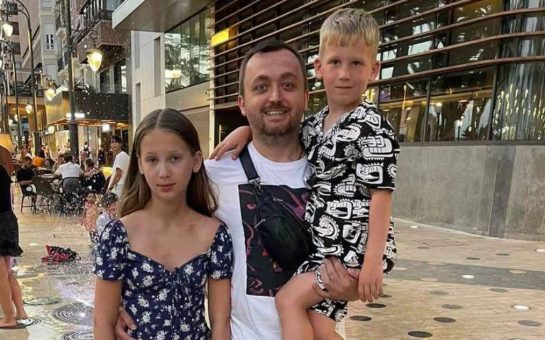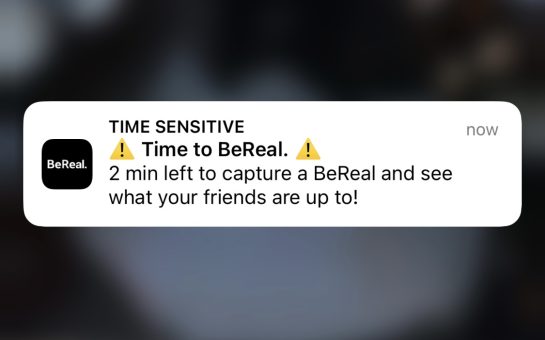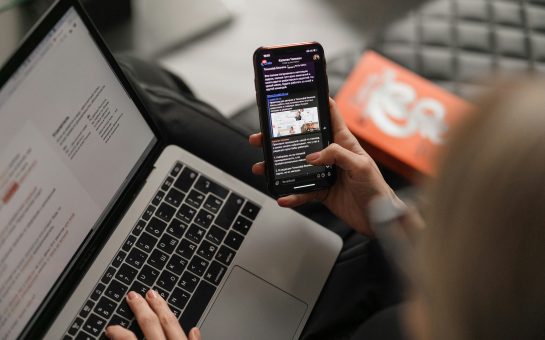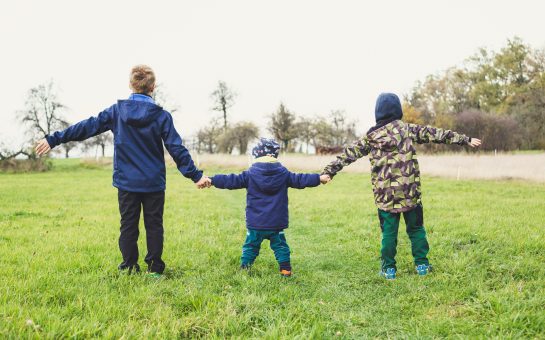Before some children are even born they carry a digital footprint with them, with excited parents sharing their ultrasound pictures as soon as they find out the news.
According to a survey by internet security company AVG 37% of newborns in the UK already have an online presence.
Prior to the popularity of social media giants like Facebook, Twitter and Instagram, it was all about disposable and instant cameras, shown to friends and family in photo albums and frames.
Social media has now become the new norm for a lot of parents to show off their children, and a way to keep in touch with family and friends – especially during the pandemic. But what is the behaviour behind this?
Child psychologist and founder of the Good Play Guide, Dr Amanda Gummer said: “I think a lot of the time it’s done out of a sense of pride, a sense of community, and part of communication.
“I think there is also obviously, the keeping up with the Jones’s and competitive parenting angle, but I think it always starts from a good place.”
The 2018 England’s Children Commissioner report says that on average, parents will have posted 1,300 photos and videos of their children on social media by the time they reach the age of 13.
In the early 2000s Mummy Blogging became the most popular way for mums to share content with wider communities, which became an empowering support network for new mums.
Creative Director at Naissance PR and former journalist, Davina Gordon shared the first year of her son’s life online, which meant more to her than just showing her son off.
Davina explained: “When it was that first year of documenting his life, I actually just thought it was a really nice thing for me to do for myself; it was a bit of therapy for me.
“I knew there would be lots of content, and I wanted it to be a blog for other mums, maybe older mums like myself, and as a way for me to look back on my journey to becoming a mother.”
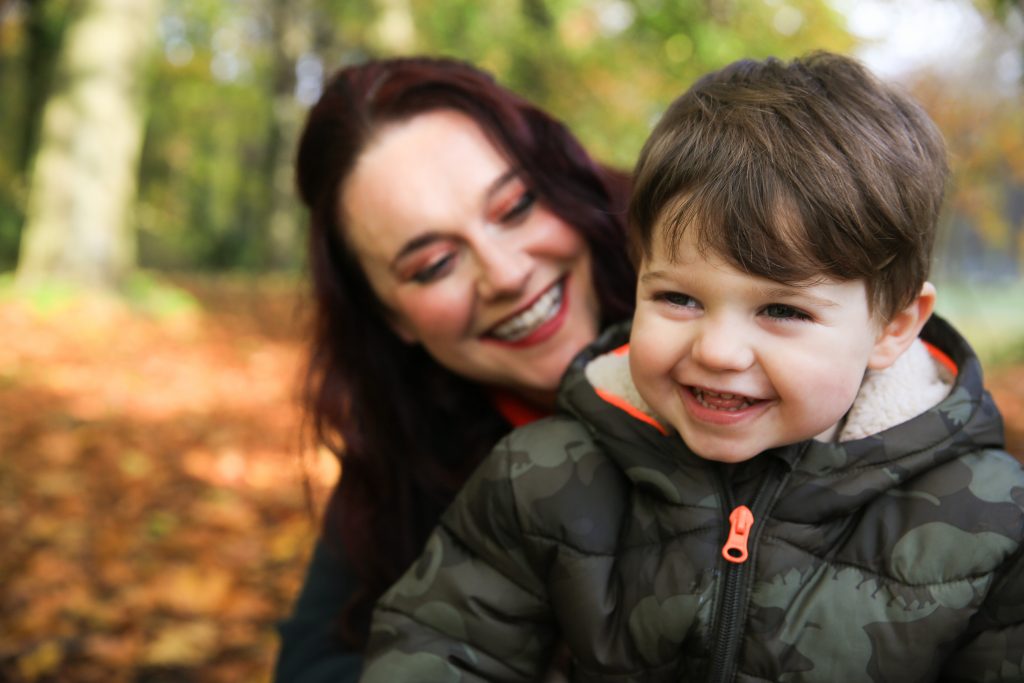
Privacy setting issues
Whilst there are many benefits to using social media, some parents – including some well known celebrities – are against sharing content that reveals their child’s identity, and others have become concerned over who can see content of their children.
Author and journalist Vanessa Holburn made the decision to only share content with family and friends, when she became involved in campaigning for Lucy’s Law – which has now made third-party puppy sales illegal.
Vanessa commented: “When I was involved in the Lucy’s law campaign at a local level – because I come from a small village and we were protesting outside of a garden centre, where there was a shop that was selling puppies.
“I began to think actually, it’s not that wise to have my children connected to me on a sort of political platform.
“Obviously there’s a lot of mummy bloggers, and it’s essential really for them to show their children online, but I did feel the work that I was doing would potentially stir up the sort of people who might not be nice.”
As much as online platforms are a space for many to express themselves, there is always the risk – for anyone using social media – of personal information or photos being misused.
In August 2020 mum Amanda Morgan came forward to tell her story – to try and shut down a Russian paedophile website – after she was alerted a few years ago by other parents, that images of her daughter had been manipulated and shared on the website.
The mum has understandably made her account private and reported it to a children’s charity and the police.
Dr Gummer said: “I would like to see parents take a little bit more of a proactive approach to their privacy settings.
“There needs to be a massive amount of digital literacy, in helping people understand what’s real, what’s not, how to behave online, what the consequences are, and the need for authenticity.”
Nominet’s 2016 study revealed that – out of 2,000 parents with children up to the age of 13 – whilst 50% said they understood the basics of their privacy settings, 39% were unsure, and 19% admitted they didn’t know what their privacy settings were.
The study showed that some were still unaware of the dangers posed when sharing personal details to people outside of their friendship circle, which could put people at risk of identity fraud or being tracked down by their location.
Vanessa said: “I think most people would probably be quite shocked that you can find out things like location of where the picture was taken.
“A lot of people know about the issue, but I don’t feel they know technically how to achieve that.
“It just feels a bit like we’re running to catch up all the time with the privacy.”
The type of content posted, knowing when to switch off and not sharent, are just as important to Davina when it comes to social media or blogging.
Davina explained: “I mean you have to be sensible by not sharing where you live or give too much information away if there is a wrongen out there that can track your kid down or whatever.
“There are certain things I wouldn’t share, especially to do with my relationship with my husband, or even details of my day to day living.
“I don’t think privacy is a concern because whatever I post I’ve vetted it myself, and yes I guess I am aware that people outside of my close circle of course are gonna see my son, but there’s no way I’d post a picture of him that was gratuitous or anything.”
Do you need consent from your child?
Celebrities such as Halle Berry, Eva Mendes, Cameron Diaz, and Kristen Bell have all chosen not to share images, or to disguise their children’s faces – all for privacy reasons and because of questions surrounding consent.
Last year Gwyneth Paltrow’s daughter Apple Martin took to Instagram asking her mum not to post a picture of her without consent.
Some fans argued that the mum had the right to post, whilst others said that children should still have respect for privacy online.
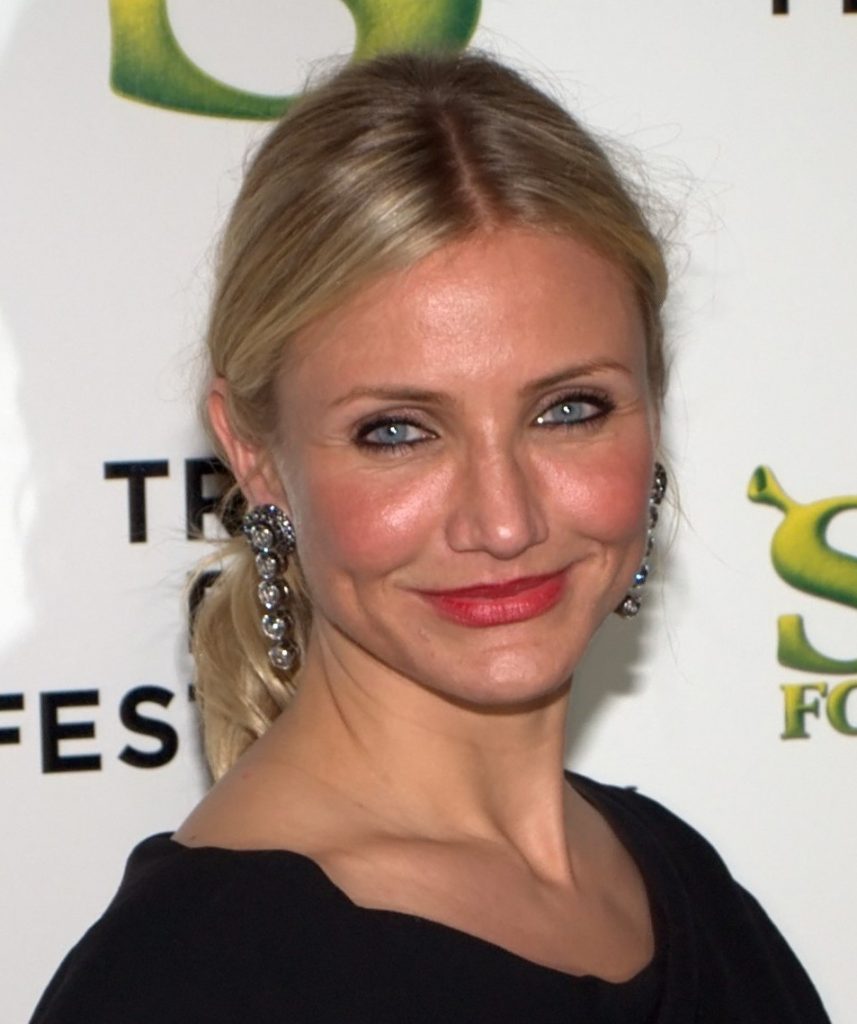
Dr Gummer said: “By not respecting their right for privacy, it can make them more vulnerable, because they think they haven’t got that autonomy over their own body, which is absolutely one of the key protectors for them against child abuse going forward.”
Davina added: “A baby doesn’t have any sense of shame or anything to comprehend that.
“I mean, to a degree you could argue that it may make a kid feel vulnerable or something because they haven’t given their permission, but it kind of depends on the context as well, doesn’t it?”
What is the impact on children going forward?
As children reach their teens and have their own social media accounts, their self-image becomes crucial, leading some to feel anxious with the posts of them already online.
Whilst seemingly harmless, if parents share pictures of their children associated in some way with a political party or a campaign, another issues is that their child may not agree with it later on, and it could even affect how they are viewed by employers.
Vanessa said: “Obviously, as children get older – particularly teenagers – they’re then in control of their image and how they want to be seen by their peers and other people.
“But another 10 years down the line, they might be applying for jobs, and once something’s online, it’s there permanently, so I think it’s important to consider all the implications.”
Dr Gummer added: “I think some kids are absolutely fine with their parents doing that, and they like performing for the camera, and there are others who absolutely don’t.
“I think they’re the ones who – if they are forced to kind of perform – or have their life laid open to everybody else, they may feel really uncomfortable, and it may knock their self esteem, and it can trigger bullying.”
The debate surrounding consent and breach of privacy remains ongoing, and as research from the Children’s Commissioner suggests, the huge amount of data collected is something many are aware of, but there isn’t as much known about the impact of collecting the data and how it is used.
Although there haven’t been any cases of children suing their parents for posting pictures of them online in the UK, under France’s strict privacy law, parents can be fined up to £35,000 for posting content without their child’s consent, so what does this mean going forward?
Dr Gummer said: “I think with all the facial recognition technology, it shouldn’t be difficult to be able to go, this is me, and I want to find all of the photos of me on the internet, and I want to be able to delete them.
“So I think giving people back control over their own digital footprints is really important.”
Davina concluded: “You need to have your eyes open, but I think overall if you’re using social media to just share your life in a general sense – and you’re not waking up at 3am and writing a monologue – which I have seen people do – and you feel safe and comfortable using it, then I have no problems with social media.”
Main photo: Unsplash
